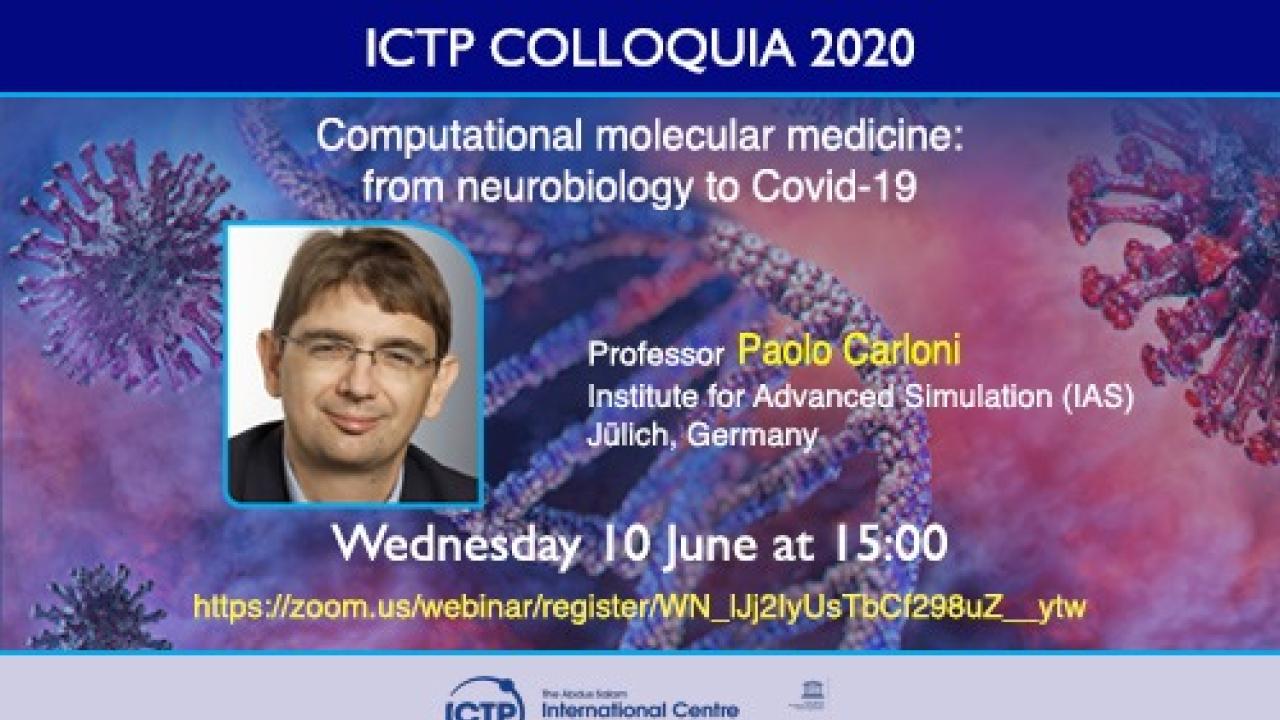
ICTP is pleased to welcome the Director of the Institute for Computational Biomedicine for an online Colloquium on June 10 at 15:00 CET: Dr. Paolo Carloni will give a talk titled “Computational Molecular Medicine: from neurobiology to Covid-19,” which is open to all.
Carloni's research focuses on molecular simulation, and bioinformatics approaches to molecular biophysics, molecular medicine, and structural genomics. He is Professor in computational biophysics at the Department of Physics of RWTH-University of Aachen, Aachen, Germany, and Director of the Institute for Computational Biomedicine at the Juelich Research Center, Juelich, Germany. He also holds a position as Co-director of the Key Laboratory for multi-scale modeling at the VNU University of Science in Hanoi, Vietnam.
Pre-registration is required for participation on Zoom, where a question and answer question will follow the talk. The Colloquium will also be live-streamed on ICTP‘s YouTube page.
Abstract: The human brain is the most complex organ known in nature. It features more than 80 billion neurons each making thousands of synaptic connections with other neurons. The communication between neurons at synapses is chemical. It involves proteins, small molecules, and other biomolecules such as RNA. Hence, a molecular-level description of chemotransmission is really important to ultimately understand brain function and dysfunction. Here, we will present recent multi scale molecular simulation studies (from quantum to coarse grain) of key molecular processes occurring during chemotransmission. This knowledge is used to identify new ligands interfering with neurological diseases. In the final (and short) part of my talk I will completely switch gears. Given the recent Covid-19 pandemic, our group, as many other simulation groups worldwide, has recently re-directed part of the research to help combat the virus, helping the scientific community by data sharing. Here, I will briefly describe our current effort, within an EU project involving 18 research units, to identify possibly molecules which may bind and inhibit Covid-19 proteins.
















